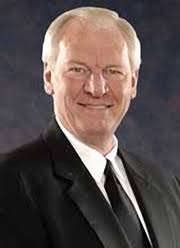🏀 From Glory to Redemption: The Untold Story of Kentucky’s Forgotten Hall of Famer
In the historic halls of Rupp Arena, where banners dangle like trophies from the heavens and echoes of triumph roar through time, Kentucky basketball has no shortage of legends. Names like Anthony Davis, Jamal Mashburn, and John Wall command the limelight. Yet, behind the brilliance of today’s Wildcats lies a story lost to time — the story of a man who once stood at the very summit of college basketball greatness, only to be quietly forgotten by the very kingdom he helped build.
His name is Dan Issel.
To many in the Big Blue Nation today, he’s just a faded name in the record books. But to those who witnessed him play, Issel wasn’t just a basketball player — he was a force of nature, a walking bucket before the term ever existed, and a man whose legacy remains one of the most underappreciated in college basketball history.
🌟 The Rise of a Kentucky Giant
Born in Batavia, Illinois, Issel arrived at the University of Kentucky in the late 1960s during a turbulent era in America. While the world grappled with civil rights, war, and social change, Issel was making his own noise on the hardwood. Under legendary coach Adolph Rupp, Issel became the engine of Kentucky’s offense. He wasn’t flashy. He wasn’t theatrical. But he was unstoppable.
In his three varsity seasons from 1967 to 1970, Issel averaged 25.7 points and 12.1 rebounds per game. By the time he graduated, he held the school record for most points scored in a career — 2,138, a record that still stands today, over 50 years later.
“He wasn’t just good,” former teammate Mike Casey once said. “He was a machine. Every night, you could count on Dan to carry us.”
Yet, despite his towering achievements, Issel never played in a Final Four. The team fell short of expectations, particularly in 1970, when Kentucky entered the NCAA Tournament as the top seed but was upset by Jacksonville University. It was a bitter pill, one that many believe dimmed the spotlight Issel deserved.
🏀 Professional Greatness in the Shadows
After college, Issel continued to defy expectations. Drafted by the Detroit Pistons, he chose instead to join the ABA’s Kentucky Colonels, where he became one of the most dominant scorers in professional basketball. He led the league in scoring as a rookie and was a six-time All-Star in the ABA.
When the ABA merged with the NBA in 1976, Issel transitioned to the Denver Nuggets, where he continued his high-level play until his retirement in 1985. He left the game with over 27,000 career points, yet never received the same recognition as many of his peers. Despite his Hall of Fame induction in 1993, Issel was rarely celebrated on the national stage or by his alma mater the way others were.
Why?
Some say it was timing — Issel played in an era just before March Madness exploded into the media giant it is today. Others point to the fact that he played in the ABA, a league that was often overlooked compared to the NBA. And perhaps, it was because Issel never courted the limelight. He let his game speak, and when it was done, he stepped away — quietly.
💔 Redemption, Recognition, and Reflection
In recent years, there has been a growing movement among Kentucky fans and alumni to honor Issel’s legacy properly. He has returned to Lexington for a few select events, but still, the spotlight has been dim. Younger generations may not know his name, but the numbers — and the character — speak for themselves.
“Dan Issel should be a household name in Kentucky,” said one former UK broadcaster. “He’s the foundation. He’s the reason the bar was set so high.”
Issel’s story is not just about stats. It’s about grace. Humility. Dedication. He never boasted. He never demanded the love of the fans or the praise of the media. But now, in this age of digital storytelling and historic reckoning, perhaps it’s time we give him what he’s due.
🏆 From Forgotten to Forever
Kentucky basketball is built on the backs of greatness. And while new stars will continue to rise, Dan Issel must never be forgotten again.
He was there before the one-and-dones. Before the million-dollar NIL deals. He played with heart, left everything on the floor, and asked for nothing in return.
That’s the kind of hero that built the blue-blood empire we celebrate today.
And that’s a story worth remembering — forever.
































